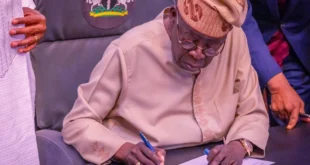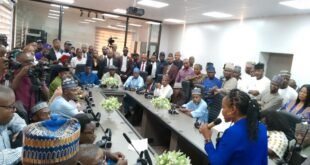A recent survey in Africa conducted by KnowBe4 revealed that 84% of respondents rely on social media as their primary news source, and 80% prefer Facebook; The heavy reliance on social platforms for information is concerning, especially as disinformation continues to rise.
This survey underscores the need for increased education and awareness around misinformation and disinformation.
With 19 African countries due to hold elections in 2024 and a number of political campaigns underway, concerns about misinformation (deliberately spreading false information) and disinformation (deliberately spreading fake news) are increasing.
The African Center for Strategic Studies reports that disinformation campaigns in Africa have quadrupled since 2022, often supported by foreign countries such as Russia and China, causing social instability.
In response to this problem, KnowBe4 conducted a survey in June 2024 on political disinformation and misinformation in five African countries: Botswana, Kenya, Mauritius, Nigeria and South Africa.
This survey involving 500 respondents found that the majority of users (84%) prefer social media to consume news compared to traditional channels such as radio, TV and news sites. Anna Collard, SVP Content Strategy and Evangelist at KnowBe4 AFRICA, notes, “80% of respondents consume news on Facebook and more than 50% use TikTok. This is worrying as none of these channels are reliable when it comes to news.”
The ability to distinguish fake news may be overestimated
Another worrying finding was that 82% of respondents felt confident in their ability to differentiate between true and false information online, despite their general level of formal education on the topic being low. Collard commented, “While most respondents reported that they were able to differentiate between real and fake news, I doubt that is the case. Other research shows that most people overestimate their ability to detect deepfakes, and ironically, more people trust AI-generated images than actual photos.”
READ ALSO: 187 former Facebook content moderators file $1.6 billion lawsuit against Meta
The survey also revealed that disinformation is a big concern for many people. 80% of respondents said they were very concerned about the negative impact of fake news and its potential to cause social division. “In Kenya, many respondents said they had seen firsthand how disinformation can lead to tribal conflict,” Collard said.
He further explained that social media influencers using inorganic hashtags sparked similar political strife during last year’s Nigerian elections. “The rapid spread of false information on social media and the increasing accessibility of AI tools makes it possible to create sophisticated disinformation campaigns quickly and cheaply.”
Collard added, “As we saw when various entities disputed the election results in South Africa in 2024, there are individuals who are motivated to disrupt democracy and act maliciously to create chaos because that is their own agenda.” Another historic example is the #whiteminoritycapital disinformation campaign run by British PR firm Bell Pottinger in 2017 to obscure former SA president Jacob Zuma’s annexation of the country.
Need for more training and tighter control
This survey underscores the need for increased education and awareness around misinformation and disinformation. As many as 58% of respondents reported that they had received no training on the topic, while around 32% admitted to ignoring fake news, highlighting the need for a more proactive and engaging response from the parties involved.
“We need a multi-faceted strategy to combat disinformation,” Collard said. This approach should include increasing awareness and critical thinking among users; coordinating government actions to prevent the spread of fake news (including stricter regulations), and increasing vigilance on social media platforms in detecting and removing disinformation campaigns.
“Fake news is an ongoing challenge that requires constant attention,” Collard concluded. “To fight it effectively, we need a combination of new technology, better ways to prevent it, and most importantly, teaching people to consume media while thinking critically, especially when the content is emotionally charged or potentially polarizing. As the digital landscape evolves, our strategies for maintaining information integrity must evolve as well.”
The post Survey says reliance on social media for news makes Africans vulnerable to disinformation appeared first on Latest Nigerian News | Top News from Ripples Nigeria.
 JamzNG Latest News, Gist, Entertainment in Nigeria
JamzNG Latest News, Gist, Entertainment in Nigeria









